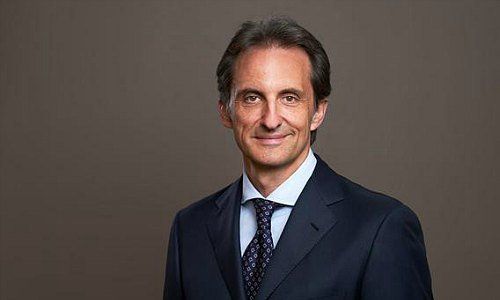Falcon Private Bank was thrown into an existential crisis by 1MDB. CEO Martin Keller tells finews.com how the Swiss bank is putting the scandal behind and discloses job cuts.
Martin Keller, you joined Falcon Private Bank less than a year ago as a board member, now you're the CEO. Was this part of your career plan?
I definitely didn't plan it like this. I intended to focus on more consulting and board mandates. The opportunity to become CEO at Falcon Private Bank had an element of fate. I couldn't and didn't want to say no.
The opportunity arose after the sudden exit of former CEO Walter Berchtold as well as that of top executive Arthur Vayloyan. You jumped into the breach. What was the mood before you were named CEO?
The tension between Walter Berchtold and the shareholder, Abu Dhabi, was already perceptible inside the bank, and that it was both personal as well as over the strategy of Falcon. The situation was fragile when I started. The uncertainty was palpable.
To recapitulate what happened: after Falcon lost its license in Singapore over 1MBD dealings and Finma issued a fine, the bank was forced to replace management and board and reinvent its strategy. How did clients react?
It was an effort to explain to clients why we had to break with our past. After the board and management changes, there effectively weren't any more key people who had a link to that part of our past anymore.
«Abu Dhabi's influence remains considerable»
That was the intention: create an entirely new foundation for the bank.
That was a requirement from Finma...
Right, Finma demanded a completely independent board.
How strong is Abu Dhabi's influence after all this?
Their influence is still considerable, but unlike the past, it's now institutionalized. They are participating as a shareholder in a constructive dialogue to transform the bank. They have underpinned their commitment with their refinancing last March (click here to read).
Falcon Private Bank has a new strategy: to be a digital bank offering crypto asset management. Did the bank merely jump on the latest trend?
True, our new strategy is based on one of the decisive trends in banking right now. We want to meet client demands that are emerging, and to differentiate ourselves from the competition. The new strategy was born out of necessity – in a positive sense.
«It's two very different worlds colliding»
The starting point was that Falcon Private Bank is a relatively small firm with a past that we had to break with. The opportunity for this new strategy wouldn't have presented itself if the bank had successfully been navigating in calm waters with a safeguarded business model.
What's demand for your crypto services like?
The demand is there – otherwise we would hardly have responded so quickly and launched an offering for it. There is an increasing need to include cryptocurrencies in asset allocation, in particular with ultra-high net worth and entrepreneur segments. We're targeting these clients.
Is it paying off already?
Yes, we are making money managing crypto assets. More importantly, we have gained access to potential clients because of our products and services that we wouldn't otherwise have been able to reach. The goal is to deepen the client relationship and to win follow-on business from them.
The tech and crypto enterpreneurs that Falcon wants to target: these types of clients don't want anything to do with a traditional private bank.
It really is two worlds colliding. These client relationships require us to adapt. We have two technology-oriented private bankers who are concentrating specifically on this new client segment.
- Page 1 of 3
- Next >>



































